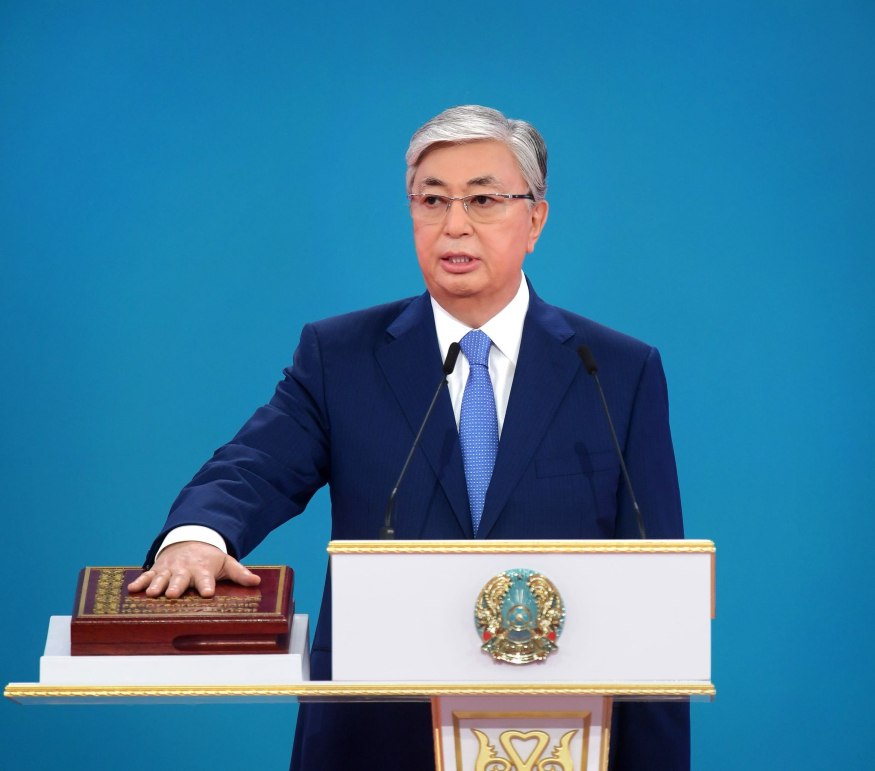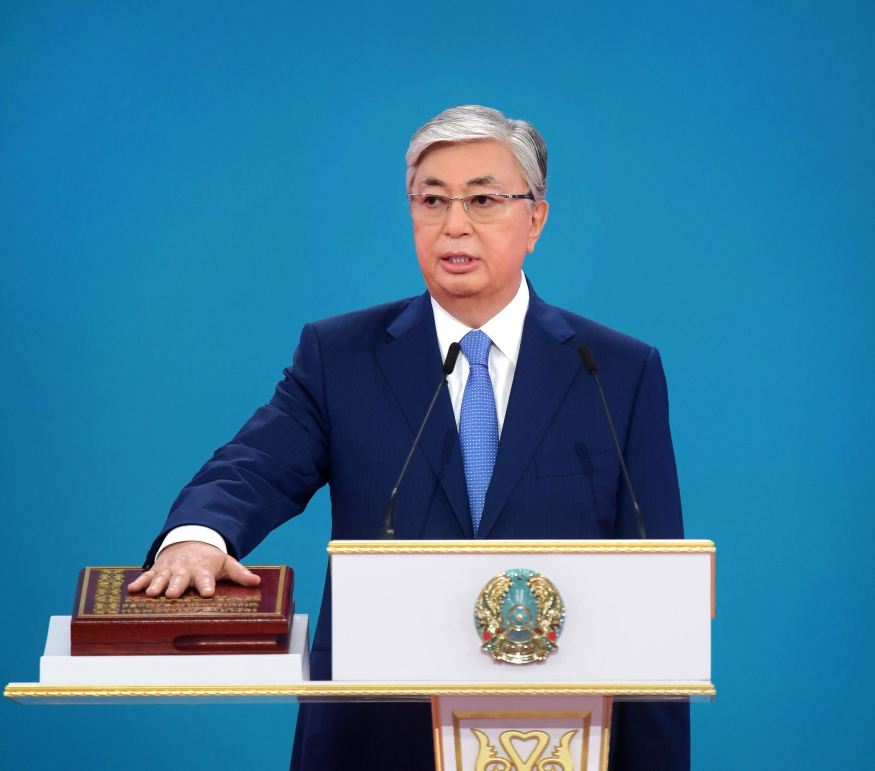- 8월 30일 카자흐스탄 헌법 제정 기념일

카자흐스탄헌법제정30주년
어떤성과를이루었는가?
1995년8월30일국민투표를통해새로운헌법을채택했을때, 국민들은현대국가건설의초석을놓았다. 헌법은단순한법률문서가아니라인본주의적가치를담은헌장이었다. 제1조는카자흐스탄을민주적·세속적·법치적·사회적국가로규정하며, 개인과그삶, 권리와자유가최고의가치임을명확히하고있다.
독립을비교적최근에얻은카자흐스탄에게이러한규정은단순한선언적구호가아니었다. 그것은국내정책, 입법발전, 국가전략의근간이되었고, 행정·명령체제에서법치국가로의전환을이끄는결정적인발걸음이었다. 지난30년동안카자흐스탄은시민의권리를보호하는제도를점진적이면서도일관되게강화해왔다. 이는공개적이고제도화된형태로이루어졌으며, 국제적의무에의해뒷받침되었다. 이로써인권은국내적차원을넘어국제적정당성의기준으로자리잡게되었다.
인권보장의확대
2022년6월5일전국국민투표를통한개헌의가장중요한성과중하나는인권옹호관(옴부즈맨) 제도의헌법적지위를부여한것이었다. 아르투르라스타예프인권옹호관은“이결정으로카자흐스탄은국가인권제도가헌법과헌법법률에의해규율되는선진민주주의국가대열에합류하게되었다”고평가했다.
그는“이는민주적성숙의신호이다. 개혁으로인해국민은헌법재판소에직접청원할수있는권리를포함해인권보장에더쉽게접근할수있게되었다”라고강조했다.
옴부즈맨의역할은단순히민원을처리하는것을넘어, 구금시설의감시, 입법과정의참여, 법교육등으로확대되었다. 2024년에는교도소, 구치소, 보호시설등약800곳을방문하여이전보다훨씬적극적인감시활동을펼쳤다.
또한지역대표사무소가전국적으로운영되면서국민적신뢰가크게높아졌다. 옴부즈맨에접수되는연간민원건수는불과몇년만에1,800건에서약7,000건으로증가했다. 라스타예프에따르면, 이는법의식의성장과제도에대한신뢰강화의결과이다. 옴부즈맨사무실에서제안한입법안은국가정책에점점더큰영향을미치고있다. 그대표적인예가바로인권옹호관권고에따라마련된가정폭력방지법으로, 카자흐스탄법체계의중요한이정표가되었다.
헌법개정을통한법치주의
카자흐스탄헌법은새로운도전에대응하며유연하게진화해왔다. 특히2022년6월국민투표에서국민들은민주화, 사법현대화, 법치원칙강화를목표로한전면적인개혁을지지했다.
사법제도가가장큰수혜를입었다. 아슬람벡메르갈리예프대법원장은“헌법에따르면모든국민은자신의권리와자유에대한사법적보호를받을권리가있다. 따라서모든시민이공정한재판을통해보호와진실을찾을수있다는확신을갖는것이매우중요하다. 법치주의는카자흐스탄의진보적발전의초석이되어야한다”라고밝혔다.
디지털화도빠르게진전되었다. 현재전체사전수사과정의80% 이상이전자적으로이루어지고있으며, 90%의수사활동은영상으로기록되고있다. 이를통해투명성이보장되고있다. 또한법무부는국민변호사캠페인과온라인법률상담실을확대하여국민의법적접근성을넓혔다.
국민의 열망
카자흐스탄헌법은지난30년동안지속성과적응력을동시에보여주었다. 채택후수십년이지난지금도헌법은개인과그권리, 존엄성이최고의가치라는원칙에기반하고있다. 특히2022년개혁은주권이국민에게속한다는헌법적원칙을공고히했으며, 법치주의와인권보장을국가정치체계의핵심에자리잡게했다.
디지털시대와급변하는국제환경속에서카자흐스탄의가장큰희망은헌법이국가정체성의기초일뿐만아니라사회적열망을반영하는거울로서계속기능하는데있다.
누르갈리아르스타노프주한 카자흐스탄대사

Kazakhstan’s Constitution at 30: What Has Been Achieved?
When people voted in the 1995 national referendum (Aug. 30) to adopt a new Constitution, they laid the cornerstone of modern statehood. More than just a legal charter, the Constitution of Kazakhstan is marked by its humanist focus. Article 1 declares the country a democratic, secular, legal, and social state, in which the highest values are the individual, their life, rights, and freedoms.
For a country like Kazakhstan, which gained independence relatively recently, these provisions were far from mere formal declarations. They became a bedrock of domestic policy, legislative development, and state strategy in the years that followed. Experts note that the constitutional recognition of human rights was a decisive step in the transition from an administrative-command system to a modern rule-of-law state.
Over nearly three decades, Kazakhstan has demonstrated a readiness to strengthen mechanisms for protecting citizens’ rights in a gradual yet consistent manner: open, institutionally formalized, and backed by international obligations. Human rights have thus acquired not only domestic significance but also become a marker of international legitimacy.
Expanding Human Rights Safeguards
Perhaps the most significant innovation of the reform that followed a nationwide referendum on June 5, 2022 was granting constitutional status to the Human Rights Commissioner. Ombudsman Artur Lastayev highlighted that with this decision, Kazakhstan has joined developed democracies where the activities of national human rights institutions are regulated by the Constitution and constitutional laws.
“This is a sign of democratic maturity. Reforms have made human rights protections more accessible, including the right of citizens to appeal directly to the Constitutional Court,” Lastayev explained.
The ombudsman’s role has expanded from reviewing complaints to proactive monitoring of detention facilities, legislative initiatives, and legal education. In 2024, nearly 800 visits to prisons, detention centers, and special institutions were carried out, far exceeding previous years.
Regional representatives of the ombudsman now operate nationwide. This institutional presence has fueled a surge in public trust, as annual appeals have grown from 1,800 to nearly 7,000 in just a few years. According to Lastayev, this reflects both rising legal awareness and stronger trust in institutions. Legislative proposals from the ombudsman’s office are increasingly shaping national policy. Among the most notable is the new law on combating domestic violence, written in accordance with ombudsman recommendations, which now stands as a landmark in Kazakhstan’s legal landscape.
Rule of Law through Constitutional Change
The Constitution has proven to be flexible, evolving in response to new challenges. The transformative change came with the referendum in June 2022, when citizens endorsed sweeping reforms aimed at democratization, judicial modernization, and the reinforcement of the principle of law and order.
The judiciary was a primary beneficiary. As Chief Justice Aslambek Mergaliyev noted, according to the Constitution, everyone has the right to judicial protection of their rights and freedoms.
“Therefore, it is crucial that every citizen is confident in the fairness of the court, where they can truly find both protection and truth. The rule of law in all spheres of life must become the foundation of Kazakhstan’s progressive development,” he said.
Digitization has advanced rapidly. Over 80% of pre-trial investigations are now conducted electronically, and 90% of investigative actions are video-recorded, ensuring transparency. The Ministry of Justice has also broadened legal access through the People’s Lawyer campaign and the expansion of its online Legal Cabinet.
Aspirations of the People
The Constitution has proven both durable and adaptive. Nearly three decades after its adoption, it remains centered on the principle that the highest value is the individual, their rights, and their dignity. The 2022 reforms in particular cemented the idea that sovereignty belongs to the people, while anchoring the rule of law and human rights protections in the country’s political DNA.
As the nation navigates the digital era and a shifting global landscape, its greatest hope lies in the Constitution’s continued role: not only as the foundation of statehood, but also as a reflection of the society’s aspirations.
Nurgali Arystanov
Ambassador of the Republic of Kazakhstan to the Republic of Korea


